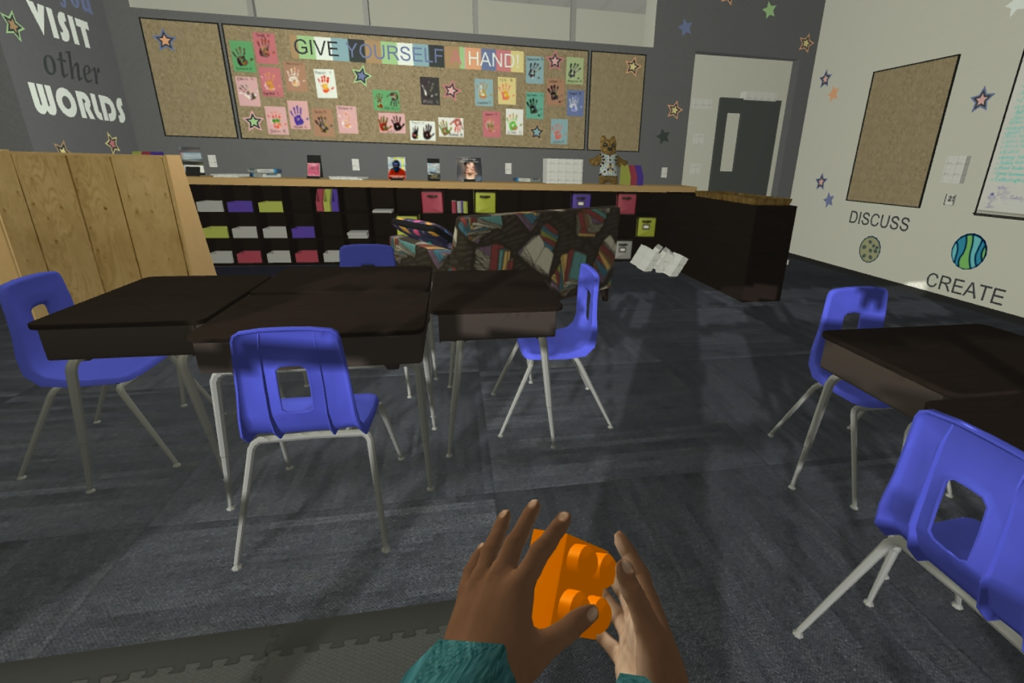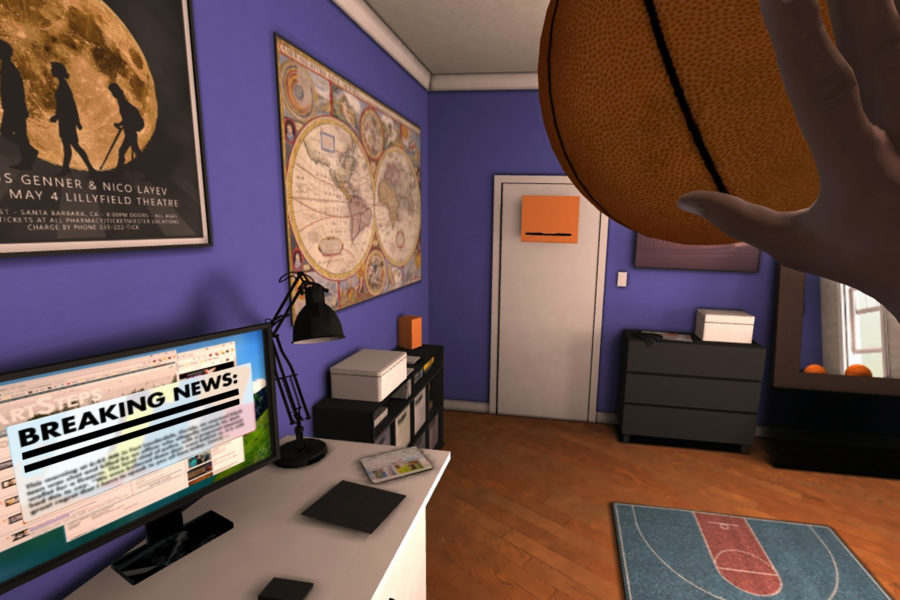The Brown Institute is delighted to announce that 1000Cut, a 2017-18 Magic Grant, is launching today as part of the Tribeca Film Festival’s Tribeca Immersive, presented by AT&T. The 2018 Tribeca Immersive program showcases works by artists who are pushing boundaries, using technology to tell stories and create new experiences and will be on display from April 20 – 28, 2018.
SYNOPSIS
Achieving racial justice requires that we understand racism. It is possible for one to espouse beliefs of racial justice and equality, but fail to truly understand the nature of racial inequality. In this immersive virtual reality experience, the viewer becomes Michael Sterling, a black man, encountering racism as a young child, adolescent, and young adult. 1000 Cut Journey highlights the social realities of racism, for understanding racism is the essential first step in promoting effective, collective social action and achieving racial justice.
CREATOR’S STATEMENT
1000 Cut Journey was created through a collaboration between the Virtual Human Interaction Lab at Stanford University and The Cogburn Research Group at Columbia University, with funding from the Brown Institute for Media Innovation. We believe that achieving racial justice requires that we understand racism—not only an understanding that emerges from intellectual exercise or even in the consumption or production of science—but rather a visceral understanding that connects to spirit and body as much as reason. Understanding the social realities of racism is critical to promoting effective and collective social action.

THE CREATORS
Dr. Courtney Cogburn is an assistant professor at the Columbia School of Social Work and faculty of the Columbia Population Research Center. She is also a faculty affiliate with the Data Science Institute and Center on African American Politics and Society both at Columbia University. Dr. Cogburn examines the ways in which we characterize and measure racism, the role of racism in producing racial inequities in health and psychosocial processes that link racism-related stress, disease and disease processes. She also has a line of research exploring the potential use of media and technology in eradicating racism and eliminating racial inequities in health. Currently, she is developing a project examining the use of immersive virtual environments in promoting empathy and racial awareness. Dr. Cogburn completed postdoctoral training at Harvard University in the Robert Wood Johnson Health & Society Scholar Program and at the Institute for Social Research at the University of Michigan. She received her Ph.D. in Education and Psychology, and MSW from the University of Michigan and her BA in Psychology from the University of Virginia. She is a fan of big ideas and is a transdisciplinary scholar who relies heavily on the integration of multiple disciplines, areas of practice and expertise to challenge the conditions of racial inequality in society.
Elise Ogle is a project manager, researcher, and 3D modeler in the Virtual Human Interaction Lab (VHIL) at Stanford University, a social science research lab that studies the psychological and behavioral effects of virtual reality. She studies embodiment, empathy and perspective taking in VR, exploring how VR differs from other types of media. Her VHIL work focuses on using VR to increase empathy towards others, as well as to design immersive, educational narratives that increase pro-environmental and pro-social attitudes and behaviors. She co-directed Becoming Homeless: A Human Experience, which premiered at the Tribeca Film Festival Virtual Arcade in 2017.
Jeremy Bailenson is founding director of Stanford University’s Virtual Human Interaction Lab, Thomas More Storke Professor in the Department of Communication, a Senior Fellow at the Woods Institute for the Environment, Faculty Director of Stanford’s Digital Learning Forum, and a Faculty Leader at Stanford’s Center for Longevity. He earned a B.A. cum laude from the University of Michigan in 1994 and a Ph.D. in cognitive psychology from Northwestern University in 1999. He spent four years at the University of California, Santa Barbara as a Post-Doctoral Fellow and then an Assistant Research Professor.
Tobin Asher helps create VR interactives, program virtual worlds, shoot and edit 360 video, and compose scores for various VR experiences. As VHIL’s lab manager, he also facilitates research projects and lab outreach. His initial interest in VR was immersive journalism as way of connecting people to seemingly distant topics. Tobin co-directed Becoming Homeless: A Human Experience, which premiered at the Tribeca Film Festival Virtual Arcade in 2017.
Teff Nichols is a licensed social worker, currently working as an Early Childhood Mental Heath Consultant and Family Therapist at The Jewish Board Child Development Center. Prior to her work in social work, she worked as a theatre artist and non-profit administrator. Teff graduated with her Masters in Social Work from Columbia University and completed her Bachelors of Arts at Hampshire College with a focus in Lacanian Psychoanalysis and Devised Theatre. Teff is grateful to have been part of the 1000 Cut team, bringing together her passion for social justice and art.
CREDITS
Directed By – Courtney Cogburn, Elise Ogle
Produced By – Jeremy Bailenson, Courtney Cogburn
Written and Conceived By – Courtney Cogburn and The Cogburn Research Group
Co-Created By – Courtney Cogburn, Elise Ogle, Jeremy Bailenson, Tobin Asher, Teff Nichols
VR Developers
Worldviz
Daniel Classon
Jerry Meng
VR Artist
Michael Nicolayeff
Video Producer
Sebastian Diaz
Video Directors
J. Xavier Velasco
Melanie Elbaz
Assistant Video Directors
J. Xavier Velasco
Sebastian Diaz
Video Script Supervisor
Melanie Elbaz
Cinematography
Alejandro Mejía
Armando Croda
Video Sound Recording
Marc Parroquin
Video Production Assistants
Teff Nichols
Rosalie Yu
Additional Development By – Ketaki Shriram, Teff Nichols, Dave Kalinoski, Dominic Cathey, Christina Villegas, Angela Han, Makeena Rivers, Ty Joseph, Roni Shani, Sebastian Diaz, Rosalie Yu

